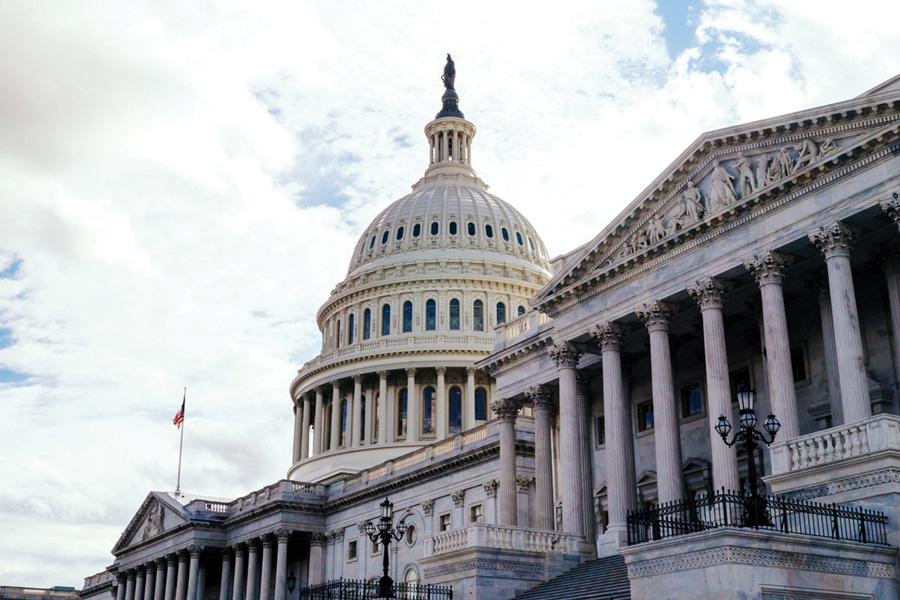

Republican lawmakers cautioned the Federal Reserve on Thursday not to address environmental policy through financial regulation and oversight – a warning that was extended to the Securities and Exchange Commission later in a Senate hearing.
In a letter to Federal Reserve Chairman Jerome Powell, the 12 GOP members of the Senate Banking Committee expressed concern that the Fed has established a committee focused on climate risks and that Fed Governor Lael Brainard said in a February speech that the regulator may require “climate scenario analysis” from banks.
“This would be beyond the scope of the Federal Reserve’s mission,” Sen. Patrick Toomey, R-Pa., the ranking Republican on the Senate Banking Committee, wrote in a letter signed by his 11 colleagues on the panel. “We urge you to refrain from taking any additional actions with respect to climate-related risks that would impose certain costs for uncertain benefits.”
During a Senate Banking Committee hearing on the risks that climate change poses to the financial system, Toomey criticized the SEC for the recent creation of an enforcement task force on climate and environmental social and governance issues.
“The Federal Reserve should not follow the example of other regulators engaged in ‘mission creep’ and nor should the SEC,” Toomey said. “I’ve warned that many on the left want the SEC to use its regulatory powers to advance a progressive social agenda on climate change.”
He also took SEC Acting Chair Allison Herren Lee to task for supporting corporate disclosure of political spending. In remarks at an online event sponsored by the Center for American Progress, Lee said that firms’ backing of climate initiatives doesn’t always align with their donations to lawmakers who don’t take similar stances on climate policy.
“In other words, these green-friendly companies may support Republicans, and that’s a problem,” Toomey said. “These actions represent an abuse of power and a politicization of the SEC’s disclosure standard. What matters is whether an issue is financially material to a reasonable investor. The real objective here is to punish politically disfavored industries.”
But the chairman of the Senate Banking Committee, Democrat Sherrod Brown of Ohio, praised a growing government-wide effort to elevate policy toward climate change. That movement is being spurred by an overarching climate focus from President Joe Biden.
Other recent SEC actions include an effort to scrutinize corporate climate disclosures and a focus on climate and ESG in agency examinations. On Wednesday, the Commodity Futures Trading Commission announced the formation of a Climate Risk Unit that will analyze the role of derivatives in pricing climate risk.
Brown said Thursday’s hearing was the first the committee has held on the environment and the economy.
“We know that climate change threatens the country’s financial stability,” Brown said. “And the financial sector, and the government agencies that oversee it, are going to have to reckon with the consequences of decades of risky investments in industries that fuel natural disasters and threaten people’s paychecks and their retirement security.”
Democrats hold narrow majorities in the House and Senate. Most congressional committees have put climate policy as it relates to their jurisdiction at or near the top of their agendas.

A Texas-based bank selects Raymond James for a $605 million program, while an OSJ with Osaic lures a storied institution in Ohio from LPL.

The Treasury Secretary's suggestion that Trump Savings Accounts could be used as a "backdoor" drew sharp criticisms from AARP and Democratic lawmakers.

Changes in legislation or additional laws historically have created opportunities for the alternative investment marketplace to expand.

Wealth managers highlight strategies for clients trying to retire before 65 without running out of money.

Shares of the online brokerage jumped as it reported a surge in trading, counting crypto transactions, though analysts remained largely unmoved.
Orion's Tom Wilson on delivering coordinated, high-touch service in a world where returns alone no longer set you apart.
Barely a decade old, registered index-linked annuities have quickly surged in popularity, thanks to their unique blend of protection and growth potential—an appealing option for investors looking to chart a steadier course through today's choppy market waters, says Myles Lambert, Brighthouse Financial.
